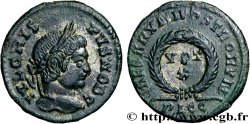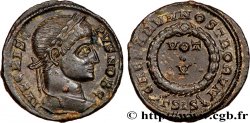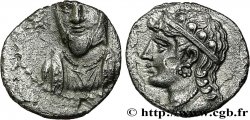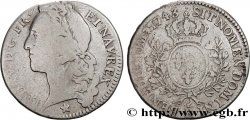Live auction - brm_583394 - CRISPUS Centenionalis ou nummus
You must signin and be an approved bidder to bid, LOGIN TO BID. Accounts are subject to approval and the approval process takes place within 48 hours. Do not wait until the day a sale closes to register. Clicking on "BID" constitutes acceptance of the terms of use of cgb.fr private live auctions.
Bids must be placed in whole Euro amounts only. The sale will start closing at the time stated on the item description; any bids received at the site after the closing time will not be executed. Transmission times may vary and bids could be rejected if you wait until the last second. For further information check the Live auction FAQ
All winning bids are subject to a 18% buyer’s fee.
All winning bids are subject to a 18% buyer’s fee.
| Estimate : | 250 € |
| Price : | 120 € |
| Maximum bid : | 120 € |
| End of the sale : | 28 July 2020 15:27:59 |
| bidders : | 1 bidder |
Type : Centenionalis ou nummus
Date: 324
Mint name / Town : Siscia
Metal : copper
Diameter : 18 mm
Orientation dies : 12 h.
Weight : 3,21 g.
Rarity : INÉDIT
Coments on the condition:
Exemplaire idéalement centré des deux côtés. Superbe portrait. Patine marron
Obverse
Obverse legend : IVL CRIS-PVS NOB C.
Obverse description : Tête laurée de Crispus césar à droite (O*).
Obverse translation : “Iulius Crispus Nobilissimus Cæsar”, (Jules Crispus très noble césar).
Reverse
Reverse legend : CAESARVM NOSTRORVM/ VOT/. /X// ..SIS(SOLEIL).
Reverse description : Légende dans une couronne.
Reverse translation : “Cæsarum Nostrorum/ Votis decennalibus”, (Vœux pour le dixième anniversaire de règne de nos césars).
Commentary
Marque d’atelier qui ne semble pas répertoriée.
Workshop mark which does not appear to be listed
Workshop mark which does not appear to be listed







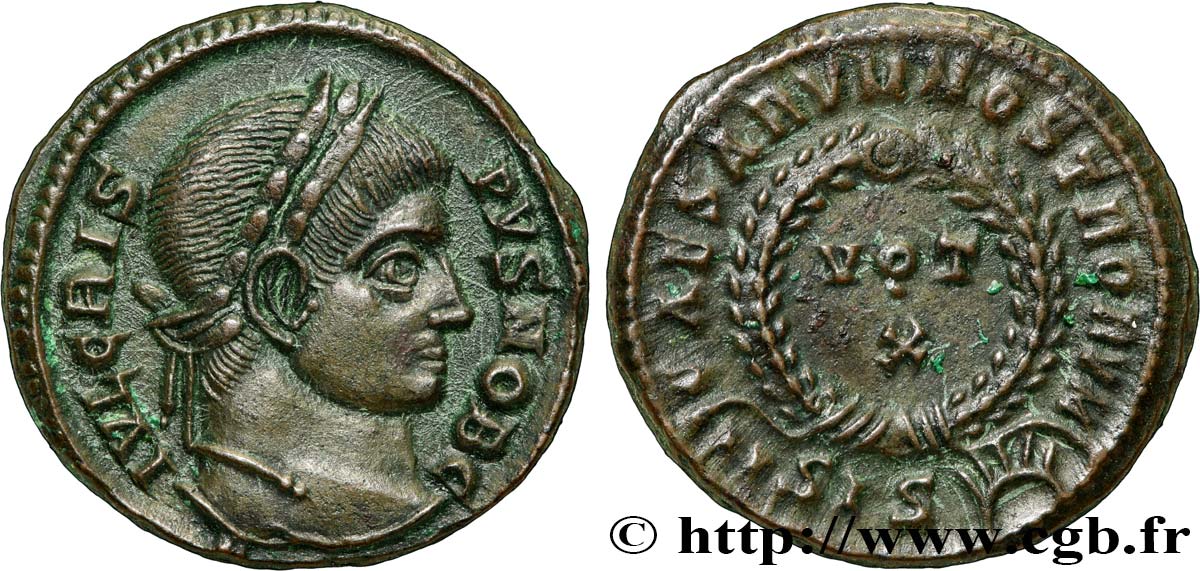
 Report a mistake
Report a mistake Print the page
Print the page Share my selection
Share my selection Ask a question
Ask a question Consign / sell
Consign / sell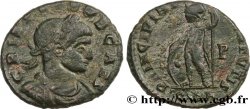
 Full data
Full data

